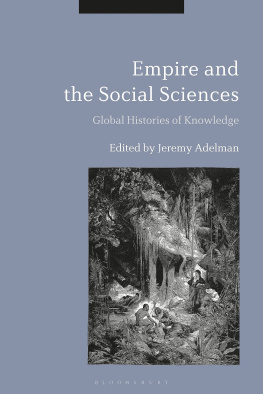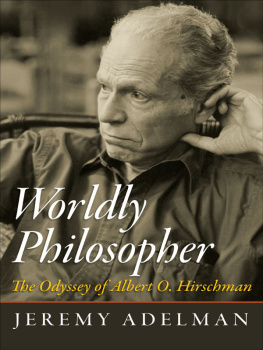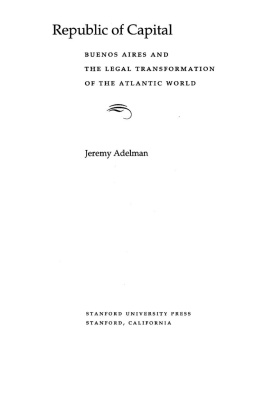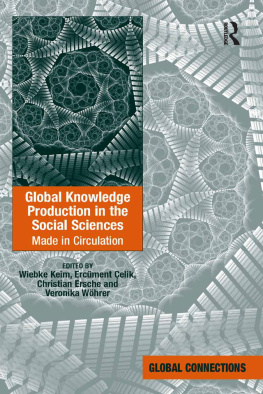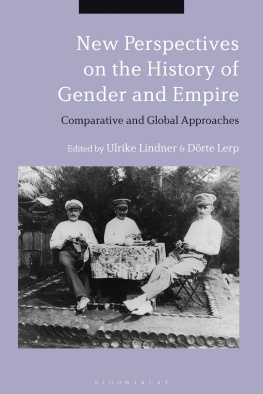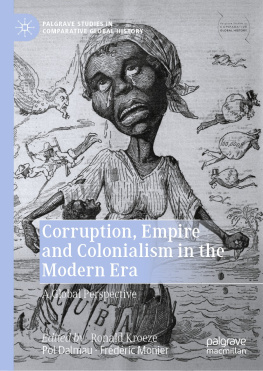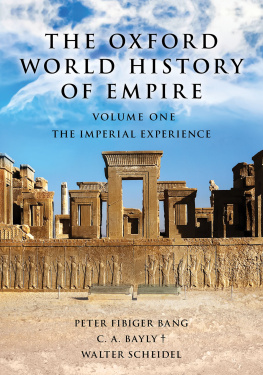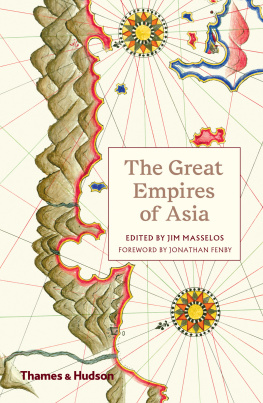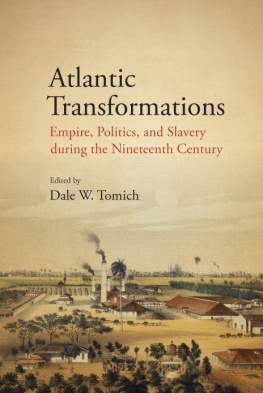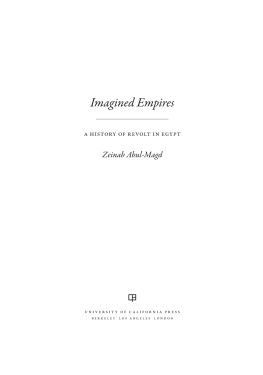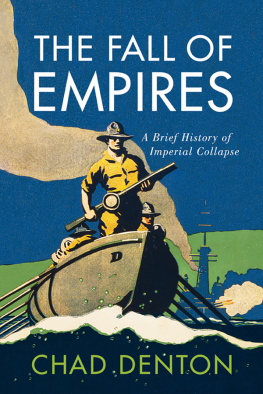Empire and the Social Sciences
Empire and the Social Sciences
Global Histories of Knowledge
Edited by
Jeremy Adelman

Contents
Jeremy Adelman
Fidel J. Tavrez
Sophus A. Reinert
Alessandro Stanziani
Shellen Wu
Diana Kim
Matthew S. Erie
Alexis Dudden
Joshua Derman
David Ekbladh
Inderjeet Parmar
Margarita Fajardo
John M. Hobson
Jeremy Adelman
This volume is the result of many years of interdisciplinary discussion about empire, resistance, collaboration and global order in the wake of the American war in Iraq. I am very grateful to the many colleagues at Princeton University who participated in these debates funded by the Princeton Institute for International and Regional Studies (PIIRS). Thanks to its former director Mark Beissinger for his wonderful support. The original team of colleagues included Molly Greene, John Ikenberry, Atul Kohli, Nick Nesbitt, Rachel Price and Michael Reynolds. Teresa Shawcross and Cyrus Schayegh also played important roles in our group. I am especially grateful to all of them for the years of companionship. Empire and the Social Sciences was the theme of a PIIRS conference which originally included comments and interventions from Sebastian Conrad, Paul Kramer, Daniel Rodgers and Emmanuel Szurek. Finally, none of this would have been possible without the support and warmth of Jayne Bialkowski.
Jeremy Adelman is the Henry Charles Lea Professor of History and director of the Global History Lab at Princeton University. He is the author and editor of ten books and is currently writing a history of interdependence.
Joshua Derman is an associate professor of humanities at the Hong Kong University of Science and Technology. His research focuses on the intellectual history of modern Germany. His book, Max Weber in Politics and Social Thought: From Charisma to Canonization , is the first comprehensive history of Webers early impact in Germany and the United States. He is currently completing a project about the theory of great spaces in twentieth-century Germany.
Alexis Dudden is a professor of history at the University of Connecticut. The author of two major books on empire, war and memory in northeast Asia, she is currently completing The Opening and Closing of Japan, 18502020 , about Japans territorial disputes and the changing meaning of islands in international law.
David Ekbladh is an associate professor of history, core faculty in international relations, and faculty associate with the Center for Strategic Studies of the Fletcher School at Tufts University. His books include, Beyond 1917: The United States and the Global Legacies of the Great War and The Great American Mission: Modernization and the Construction of an American World Order , which won the Stuart L. Bernath Prize of the Society of American Historians and the Phi Alpha Theta Best First Book Award. He is completing studies entitled Look at the World: The Birth of an American Globalism in the 1930s and Knowledge as Power: Information and Internationalism in a World in Crisis .
Matthew S. Erie is an associate professor of modern Chinese studies at the University of Oxford. His interdisciplinary work in law and anthropology examines the role of normative pluralism in international ordering, with a focus on China. He has written extensively on Chinese domestic law and Chinas impact on international law. His first book, China and Islam: The Prophet, the Party, and Law is the first ethnographic study of the relationship between sharia and state law in China. His current research examines Chinas approach to law and development in weak states.
Margarita Fajardo is an assistant professor at Sarah Lawrence College. She recently received a fellowship from the National Endowment of the Humanities to complete her book manuscript tentatively titled The World that Latin America Created . She is interested in intellectual history and the politics of science and expertise as well as in the history of Latin American and global capitalism.
John M. Hobson is a professor of politics and international relations at the University of Sheffield and is a Fellow of the British Academy. His primary research interest is to provide a critique of Eurocentrism within IR, IPE, world history and historical sociology. He is currently finishing a book that advances a non-Eurocentric account of the global economy.
Diana Kim is an assistant professor at Georgetown University in the Edmund A. Walsh School of Foreign Service. Her research interests include modern state formation, illicit economies and transnational histories of colonialism and Empire across Southeast and East Asia since the late nineteenth century.
Inderjeet Parmar is a professor of international politics at City, University of London, and head of the Department of International Politics. His most recent book is Foundations of the American Century: Ford, Carnegie, and Rockefeller Foundations in the Rise of American Power . He has held research fellowships at Oxford and Princeton universities. Parmar is past president of the British International Studies Association.
Sophus A. Reinert is the Marvin Bower Professor of Business Administration at Harvard Business School. He works on the histories of business, capitalism and political economy from the Italian Renaissance to todays emerging markets.
Alessandro Stanziani is directeur dtude (professor) at the cole des Hautes tudes en Sciences Sociales in Paris and is a senior researcher at the CNRS. His research interests include global history, labour history especially in Russia, the Indian Ocean, and France in the eighteenth and nineteenth centuries.
Fidel J. Tavrez is an historian of the eighteenth-century Spanish Atlantic with a particular focus on issues of political economy and empire. At present, he holds a research fellowship from the Alexander von Humboldt Foundation at the Freie Universitt Berlins Center for Global History. He is completing a book about political economy and empire in the Spanish world.
Shellen X. Wu is an associate professor of history at the University of Tennessee, Knoxville, where she has research interests in the history of science in modern China, spatial history, imperialism and how changes in the uses and exploitation of natural resources affected the modern Chinese state and society. Her Empires of Coal : Fueling Chinas Entry into the Modern World Order, 1860-1920 narrates the history about how Chinese views of natural resource management underwent a major change as a result of the late Qing engagement with imperialism and science.
Jeremy Adelman
The study of modern societies, politics and economics has been intimately associated with life in the nation. The arc of the social sciences overlaps with and, to a large extent, conforms to the arc of modern nation states. It would be hard to separate how scholars have understood modern ideas of government or work from the pulse of national communities. From the political economists who pressed French or Spanish rulers in the eighteenth century to open trade in grains to the health policy gurus embroiled in Americas interminable debate about how (or whether) to insure all its citizens, writers, pundits and growing ranks of university professors as well as cognoscenti in foundations and think tanks have been mobilized to indeed they were created to serve the nations of which they were a part.
The reasons for this alliance between social scientists and nation states are many. Most of all, the challenges of new forms of rule, especially with the emergence of mass democracy and the risks of living by market rules, summoned intellectuals to make sense of a world that was no longer subject to the traditions of estates, feudal structures and ancien rgime privileges. The habits, identities and norms that arose as societies re-amalgamated into nation states yielded pressures to integrate, to shelter and to mobilize an emerging and evolving citizenry. The need to understand money, plan cities, resolve labour disputes and chart national histories for schools and universities meant that intellectuals got enlisted in the project to make their societies knowable, legible and even predictable and were called upon to advise rulers on policies for the co-members of their nations. Others, by contrast, felt called upon to challenge rulers to speak truth to power, as the saying goes as moral voices of the nation. The very word intellectual sprang to life as an epithet during the French controversy over the trial of the Jewish officer, Alfred Dreyfus, in the 1890s. This courtroom and public square battle over the limits of tolerance and the legitimacy of the guardians of the French nation ripped through the countrys intellectual and university life. By the late nineteenth century, the very idea of the intellectual as a critical observer was starting to take visible shape.

